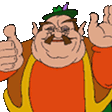686
Five years after killing a journalist in cold blood, Saudi Arabia is stronger than ever
(www.theguardian.com)
News from around the world!
Please only post links to actual news sources, no tabloid sites, etc
No NSFW content
No hate speech, bigotry, propaganda, etc
There is absolutely nothing inconsistent between free-markets and market concentration. If by a free-market, we use the standard neoclassical meaning of one where there is no/very little/minimal government or public regulation to influence demand or supply or the price mechanism, which in material terms implies that those are completely controlled by private capital and its owners, then there is nothing stopping this from being an oligopoly, a cartel or a monopoly. Actually lack of public regulation has generally lead to more concentration, not less.
I think you are confusing the neoclassical 'perfect competition' (which does not, and cannot, exist in the real world) and neoclassically defined 'free'-markets.
Please don't try drop econ-101 learns on Marxists if you don't know the definitions of free-market economics, perfect competition or oligopolies.
If it involves "an oligopoly, a cartel, or a monopoly" then it is not a "free market" according to what they taught me in econ 101, everything convincing that I've heard since, and what Adam Smith explicitly wrote down when he first described the idea. Wikipedia cites Karl Popper in saying that in classical economics a free market is one that's "free from all forms of economic privilege, monopolies and artificial scarcities," and that it's a market in which economic rents are minimised. A monopoly is by definition antithetical to a free market. Any neoliberal suggestions that attacking the whole concept of public regulation of markets will always make them more free are simply lies, and should not be accepted.
That there is at present little or nothing preventing any imperfectly but approximately free markets that might otherwise exist devolving into less free ones dominated by monopolies, cartels, corrupt and captured regulators, out-of-control rent seeking, frauds that rely on information asymmetry, and other such perversions is (obviously, I thought) the reason why I've been consistently saying that "free" markets are not something we see much of in reality. Perhaps that's not exactly congruent with Marxism, but I don't think it's inconsistent with it either.
lol
How do all these cartels keep getting in my free market? Gosh darn-it!
Markets unregulated tend towards oligopoly, cartels and monopoly over time. Free market is interchangeable with private autocracy.
"The free market is so wonderful that the slightest unpleasant activity makes the free market no longer wonderful but that isn't the free market's fault except everyone with means is able to make that unpleasant activity happen, which again isn't the free market's fault and we can not possibly have a better system."